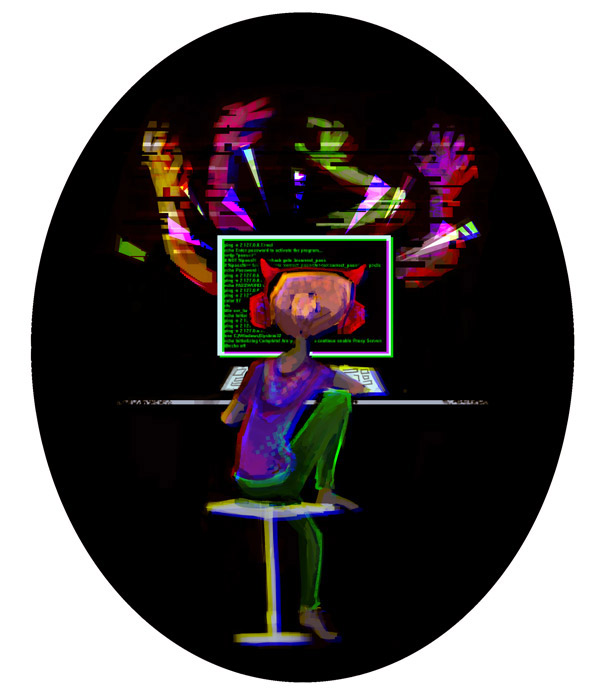In a rapidly evolving world where people’s information is becoming more accessible and privacy is quickly eroding, anti-surveillance tools are increasing in popularity. To overcome a lack of privacy, OpenMedia McGill, in partnership with HackMcGill, acquainted students with anti-surveillance tools, like Tor and Signal, in a workshop on March 16. The workshop demonstrated how individuals can protect themselves using encryption-based apps while on the Internet to protect messages, emails, or maintain their anonymity online. OpenMedia McGill is part of a Canadian NGO that protects and promotes student interests concerning information policy, privacy, and surveillance.
The workshop stressed the value of privacy in an increasingly information-based and Internet-dependent society.
“Everyone wants to maintain a certain amount of privacy, whether they think they do or not,” Michelle Guo, U2 Arts and director of OpenMedia McGill, explained.
The workshop introduced the application Signal, a messenger that uses end-to-end encryption to encrypt texts such that only those communicating are able to read them—this makes it nearly impossible to be breached by a form of surveillance.
In the Canadian context, Bill C-51, the Anti-terrorism Act that the Canadian parliament passed in 2015, expanded the power of government agencies to share information about individuals. This type of governmental surveillance is what OpenMedia is attempting to curtail by providing free workshops. Using an app like Signal is an initial step to combat the state of increased security from the consumer end. Additionally, such apps offer more individual control over personal information and privacy.
Despite the workshop’s emphasis on surveillance, the fear of a dystopian Big Brother constantly watching is not the incentive that drives OpenMedia’s work.
“The goal is not to insight fear,” Vice-President of OpenMedia McGill, Nina Soulier, said. “It’s more like what steps to be taken to prevent government surveillance and breach of privacy.”
Using a network like Tor would provide its users with anonymity from both government surveillance and any individual that may wish them harm. The focus of the workshop is not only preventing government surveillance, but also that of non-governmental parties.
Distinct from surveillance, hacking is often romanticized in TV shows and movies as a formidable threat in which the average individual is a defenceless target.
“Hacking can be prevented with two-step verification for social media accounts, but mostly [with] common sense,” Guo said. “For example, changing URLs to 'https' to ensure security whenever you can and avoid clicking on phishing links or suspicious emails.”
It is important for these workshops to rationalize the fear of the unknown. If the concept of hacking is unpacked and attendees understand the steps needed to guard against it, they will begin to feel empowered, which is ultimately what these workshops try to do.
Interestingly, not all of the participants attending were there for the protection of their privacy. Samy Zarour, a fourth-year Computer Science student, explained that he didn’t necessarily attend the workshop for his own privacy interest.
“Encryption is a very important part of developing apps […] and there aren’t any courses at McGill that teach you this skill,” Zarour said. “I’m not here to learn how to protect myself.”
The workshop not only served as an anti-surveillance guide, but also an opportunity for prospective app designers to learn how to protect their future creations.
Regardless of what each individual takes out of the workshops, it’s important to note that OpenMedia McGill is attempting to empower and educate the student body regarding their privacy and teach a skill to avoid unwanted hacking or surveillance.








